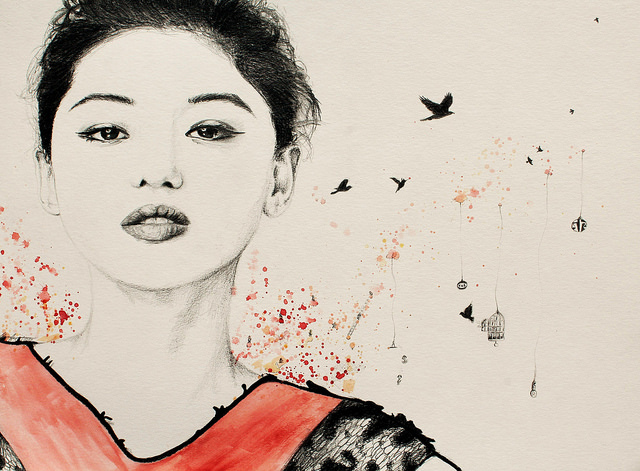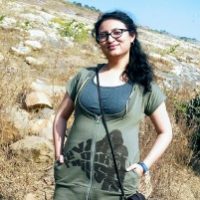Trust is organic, relational and dynamic.
Like a flower, trust can blossom in the right conditions. Likewise, it can wither after just one season if unattended. Trust needs careful attention to stay in good health.
Without the courage to trust, we cannot be vulnerable. Without vulnerability, our awareness of life and our capacity to engage with it shrink, and the fabric of our life experience becomes eroded.
Trust is quite instinctive and intuitive; the decision to trust someone or not comes to most of us quite naturally. We find it acceptable to not trust certain people because they are not capable of honoring it. Yet it is not uncommon for people to have a string of bad experiences and end up disengaging with the process of trust itself.
I have been through such phases—times when it felt like life was lashing out at me. In response to those outer threats and painful losses, I crawled, like a turtle, into my shell—that inert sterile space inside of me. I refused to come out, as it felt safer not to engage, to stay closed, to not feel or think, to drift in a vacuum.
But, over time, in my efforts to save myself from pain, I became impervious to pleasure as well. When I chose to stop being vulnerable, my heart hardened equally toward everything—both the good and the bad. I eventually realized that by not trusting enough to open up to experiences, I was frozen.
I was breathing, but I wasn’t really alive—a shadow of the lively, loving person I used to be.
To come out of that cocoon of indifference, to glide slowly but firmly back into engagement with life all over again, I decided to ask myself some questions—the answers to which brought me great awareness. Eventually, I progressed toward embracing the fullness that life offers when we surrender to it.
Question One: Do I trust myself?
A bird perches upon the highest branch not because the branch is strong, but because it trusts its own wings to take flight in case the branch gives way. This was my first realization. My refusal to trust others was in essence a lack of faith in my own ability to handle tough, unexpected outcomes.
The narrative went something like this: “What if he or she is not there for me when I need? I don’t want to live in the fear of being let down!” This external fear masked a much more crippling inner fear: “I can’t handle not being in control of my relationships because I’m not resourceful enough to handle disappointment.”
The truth is, the people we love are not obliged to meet our needs. The fact that they do so often, and that we can even ask them to provide for us, is itself a blessing. When others can’t take care of us in one way or another, it is an opportunity to rise up and meet our own needs.
We may need practice to rely more on ourselves without judging our loved ones for not meeting our expectations. It can be hard at first, but we can get better at it over time. Like the bird who explores great heights, we too can fearlessly explore life and relationships because we know we can count on our own ability to soar.
Question Two: Do I trust life?
Sometimes, our circumstances are just plain hard. They are particularly difficult because they introduce us to our own limitations and the less explored, more uncomfortable parts of ourselves. What to do then?
I used to erroneously focus on escaping or ending unpleasant circumstances without understanding them. I kept missing opportunities to learn and grow. Just after finishing my Master’s degree, I had applied to many prestigious universities for my PhD, but didn’t get accepted. Then, I took a research opportunity at a lab, expecting it to be a buffering experience to fill my resume until I found the PhD opportunity I wanted.
However, I ended up pursuing my PhD from this very lab, along with its members. As a result, I have grown beyond my expectations professionally just by being here and giving my best to the work that presented itself. This is just one example of sticking it out until it finally made sense through the lens of retrospect.
By learning to engage with difficult situations, I saw how walking through them added depth and breadth to my life. My understanding of myself, my work and my relationships expanded. Sometimes a “no” from life can bring us opportunities we hadn’t considered and growth we didn’t anticipate. When we roll with life in enthusiasm and good faith, we often have the chance to land up in places that exceed our own expectations.
Question Three: Do I choose myself?
Sometimes, in chasing after a cherished goal—whether it’s a relationship or professional role—we unwittingly give more than we can or invest more than we can afford to lose. In this state of depletion and sense of entitlement from doing too much, it’s easy to feel victimized or indulge in self-pity.
I have been guilty of both indiscriminate giving and investing. In my attachment to outcomes, I failed to notice exit signs glowing in neon red. I had also failed to slow down and rest. I allowed things I shouldn’t have, like being a good friend at the cost of my health and inner peace. Not saying “no” to certain requests and conversations left me drained, bitter and resentful of the friendship itself.
At times in our compulsion to be there for someone, we forget to be there for ourselves. We fail to exercise healthy boundaries and become a dumping ground for a loved one’s unmet needs and unprocessed pain. From this position, we help no one. We fail our loved ones by not supporting their growth, self-care and resilience. We close ourselves to intimacy in relationships in fear of becoming others’ unhealthy escape from their responsibilities.
It is commendable to pursue goals and ideals, but they should serve our own well-being and that of those around us. When we trust ourselves to make the most loving and sensible decision for us and others involved, we have a footing firm enough to go forward and welcome life within our capacity.
These questions popped into my head at random when I was praying and hoping for clarity. Life can be messy, and our responses can be equally messed up. Engaging in these questions cleared things up for me, and they made me realize that trust is a process that works inside out.
Without trusting ourselves and our unique alchemy with life itself, we cannot trust elements outside of us. The responsibility to be sensible with our choices is unequivocally upon us. These questions helped me engage with life when it was easier to shut down, hence sharing.
If you have tools that help you stay open and trusting, do share in comments. I would love to hear from you!
~
Author: Anushree Bose
Image: Flickr/lucahennig
Editorial: Callie Rushton











Read 0 comments and reply